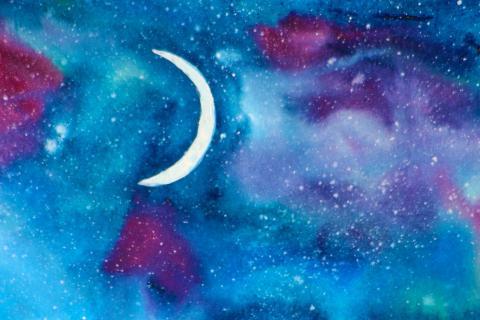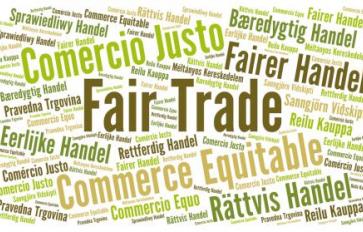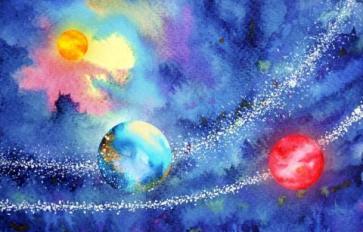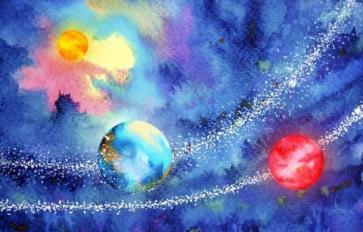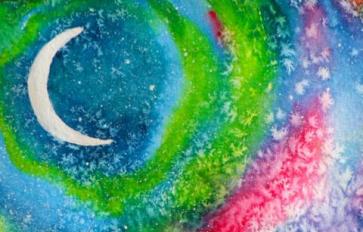Describe yourself in three words:
Compassionate, clairvoyant, healing
What is the greatest challenge you have overcome/are overcoming
I had the dream of becoming a writer from the time I was 10 years old. Soon after graduating college, I got a job writing for The Washington Star (a major metropolitan newspaper in Washington, D.C.). I loved working there and assumed that since the newspaper had been in operation for 128 years, it would go on for another 128 years. But after only one year of writing there, the newspaper suddenly gave notice that due to the economy, it was going to close its doors forever. As one of the youngest staff members, I found myself in competition with more than 100 older, seasoned reporters, all of whom were looking for jobs at the other major newspaper in town, The Washington Post. “Cub reporters” such as myself had to search for jobs in other cities (this was pre-internet days). I ended up in the Deep South, at the Atlanta Journal-Constitution. As a born-and-bred New Englander, I didn’t know the difference between a hush puppy and grits. And I had barely stepped foot below the Mason-Dixon line (except to visit grandparents in Florida:-)--until that time.
I arrived in Atlanta, and quickly learned that the American Civil War, which had been fought from 1861 to1865 and was the furthest thing from my mind, was still being fought in the minds of many Southerners. I learned for the first time that I was a “Yankee,” and that Southerners feared liberal-minded Northerners like myself. I was assigned to be a police reporter, and was sent out to cover murders and fires in the at-the-time deeply racially segregated city (1980s).
After covering congressional hearings and federal agencies at my previous job, I was a bit out of my element. Yet, I saw that healing was needed in the deeply divided the city. Soon after my arrival, I noticed a pattern of black women being strangled by their bras and left in parking lots in the poorer neighborhoods of Atlanta. The police didn’t feel these cases were connected or worthy of investigation, despite my protests.
So, I decided to solve the murders myself.
Through various public records and visits to rundown Atlanta neighborhoods, I tracked down the mothers of the murdered women. After knocking at their doors and not knowing what to expect, I was warmly greeted by each mother. Each grieving parent invited me into her home, offered me tea and cake or cookies (good Southern hospitality), and shared stories of her daughter’s life. Before urging me to leave the racially segregated neighborhood as quickly as possible, each gave me a photo of her deceased daughter and a crucial piece of information—that all had visited the same bar on the night of their deaths. The mothers warned me not visit the bar for my own safety. But, undeterred, I headed straight to the bar nonetheless.
Unlike the warm reception I received from the grieving mothers, at the bar I was met with a hissing sound from the all-male, all-black patrons. They clearly didn’t like a blond-haired, blue-eyed femaie on their turf. The bartender ran interference for me as I explained the fate of the series of female bar-goers and showed the bartender photos of the women. He immediately recognized the women in the photos, and gave me a description of the same man with whom each had left the bar on their last night on earth.
I rushed back to the newsroom, wrote the story about the man who apparently had escorted each woman to her death. It was a front-page story that police could not ignore. The police department quickly sent a plainclothes detective to the bar. It was not long before the murderer entered the bar and sidled up to his next would-be victim. He was quickly apprehended and DNA samples proved his guilt. The murders stopped.
This was just one of the many challenging circumstances I encountered as a young, white, female, crime reporter in the pre-millenium Deep South. I also found myself working to prove the guilt-beyond-a-reasonable-doubt of the Atlanta child murderer (22 black boys killed; many bodies found floating in the Chattahoochee River) by convincing the jurors in his murder trial, who had taken an oath of silence, to share with the public how and why they reached the guilty verdict. Members of the black community began rioting after his conviction was handed down, because they said the convicted black man had been “framed.” Had he? I wondered myself.
So, with the help of the jurors, I went through copious notes they had taken during their 9 days in jury deliberations. The manner in which they connected the dots went beyond what was revealed in the courtroom, and in fact, proved the convicted man’s guilt beyond a reasonable doubt (having to do with matching carpet fibers and DNA samples on the bodies of the victims and the murderer).
The revelations were front-page news. Within hours of the moment the newspaper “hit the streets,” the rioting stopped.
The Atlanta crime reporting job proved to be continuously grisly and challenging. On one cold, snowy winter night, I was sent late at night from Atlanta (Georgia) to a collapsed coal mine in the foothills of the Smoky Mountains of Tennessee. My job was to find out if anyone would come out alive from the collapsed mine (they didn’t). It was then my job to speak to grieving widows and children. The challenge of bringing comfort to people while also sharing their deepest moments of grief and sorrow prepared me well for my future career as a healer and psychotherapist, and sharpened my writing skills--but did little to promote much restful, peaceful sleep.
After proving my mettle as a Yankee with grit (as opposed to grits), my Atlanta reportorial journey next took me to the “business desk” of the newspaper, where I covered less gritty stories on the financial markets. That assignment then took me to The Miami Herald to write a business column, before I moved on to become an editor at Business Week Magazine in New York City.
I eventually translated my love of authentically talking with people and discovering the truth into the healing arts. I went back to graduate school to become a psychotherapist, and also studied Astrology in London before securing my first book contract for “Astrological Secrets for the New Millennium” in 1996. I moved to California to write this book, the 1st of 5, and to pursue a more meditative and creative lifestyle while continuing my psychotherapy and astrological counseling practices. These experiences taught me the importance of resilience and resourcefulness, even in the face of the challenges and curve balls life sends our way. These are characteristics I enthusiastically promote in my clients and help them to cultivate in their dalily lives!
What is unique to you about your work?
As a psychotherapist and astrologer, I combine deep insights about the human heart and soul and integrate the ancient, occult wisdom of astrology.. My rich and active meditation practice enables me to infuse greater peace, harmony, and a calming influence into my work with my clients.
How do you guide clients into their own healing/inner freedom?
I support the positive strengths, gifts, and talents of my clients while also pointing out any obstacles they may face along the way, with a focus on options and potential solutions.
Astrology has an uncanny ability to bring understanding to the past and to foretell transitions upcoming in the future. Having the awareness an astrological reading provides is an invaluable tool in directing and determining your next step—in the best way for yourself and others!
What tools have you found least/most effective in your work?
The most effective tools are: clear insights, compassion, unconditional positive regard for all people and problems, and creating a loving, warm, and accepting healing environment. I also use EMDR, Brainspotting, and other proven psychotherapy techniques to help people release old patterns and create new, more effective and adaptive patterns for the future.
